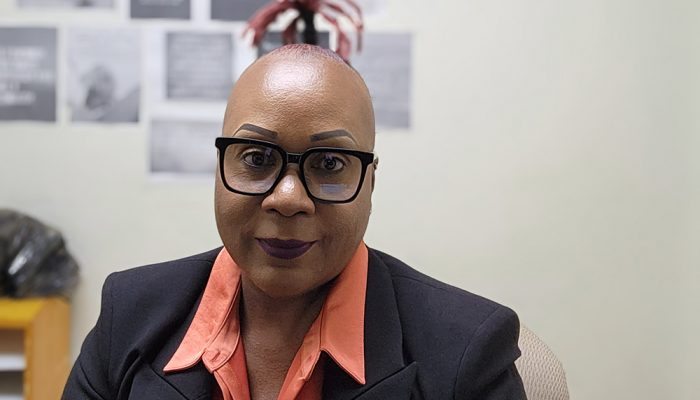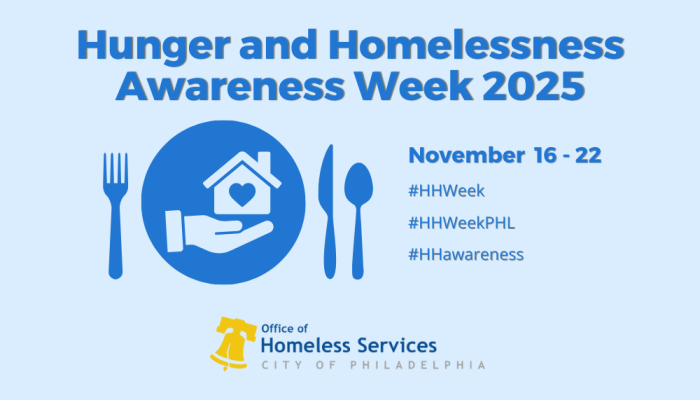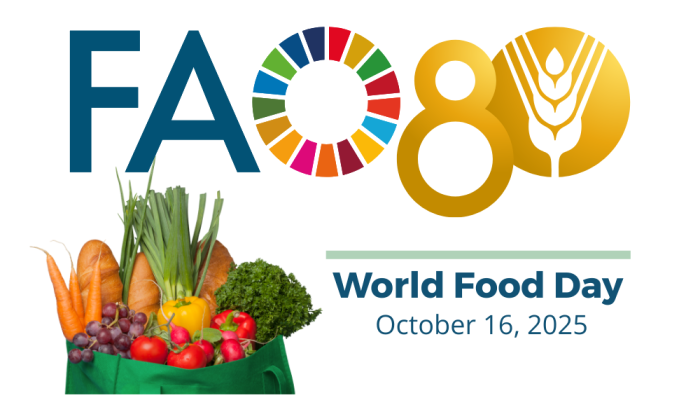Homelessness can have a significant and lasting impact on children, including disruptions to child development and education. That’s why the School District of Philadelphia and the Office of Homeless Services (OHS) have teamed up to provide onsite assistance at the OHS Apple Tree Family Center and Roosevelt Darby Center to help families with elementary and secondary school registration issues and there is perhaps no one more qualified than Wendy Ann Pereira, who is serving in the newly established Education Relief Liaison role.
Ms. Pereira’s career has spanned decades, primarily in New York City, where she worked first as a teaching assistant for the Department of Education, and then as a case manager at a domestic violence shelter. Her experience gives her an acute understanding of the needs of families experiencing homelessness – not only connecting them to resources, but also navigating the education system.
“School is crucially important for students with unstable housing. Academically speaking, homelessness leads to absenteeism and children can’t keep up with their work. On the emotional side, it can be devastating,” said Ms. Pereira. “Moving around from school to school, they lose the friendships they work hard to build, they must adjust constantly, and there is a sense of instability. It takes a toll.”
Since joining OHS, Ms. Pereira has focused on helping families enroll and transfer their children, get uniforms, work with children with Individualized Education Programs (IEPs), and make requests on parent’s behalf for evaluations for children who need them. She also works with the School District to ensure that families have access to all resources for which they are eligible, including transportation to and from school. Some of the biggest hurdles Ms. Pereira helps families with are tracking down birth certificates, arranging for vaccines, and meeting other requirements for enrollment.
“I connect families to whatever they need for kids to get into school. But just like every other job that I’ve had, you must look at the full picture. In school, it’s best to treat the whole child. In homeless services, you need to understand the whole family,” said Ms. Pereira. “The resources I track down for families help to address the reasons why families become homeless in the first place.”
Philadelphia is dedicated to addressing family homelessness. “A lot of families are cycling through the system – they will find placement but will be back in the shelter once resources run out,” said Ms. Pereira. “I am able to refer families to health providers, employment opportunities, and other long-term solutions to promote stabilization.”
In 2022, the city’s network of homeless service providers served more than 2,000 families (6,049 total people) in all project types, including emergency, temporary and long-term housing. Ms. Pereira estimates that she has served more than 50 families since July.
“My job is all about building relationships. I don’t just meet with someone and get information; I get to know families. It’s critically important for building trust,” said Ms. Pereira. “After intake, I continue to keep in touch with families to ensure their needs are being met. When I work with the families, I do what I say I will do. That’s the only way it works.”




